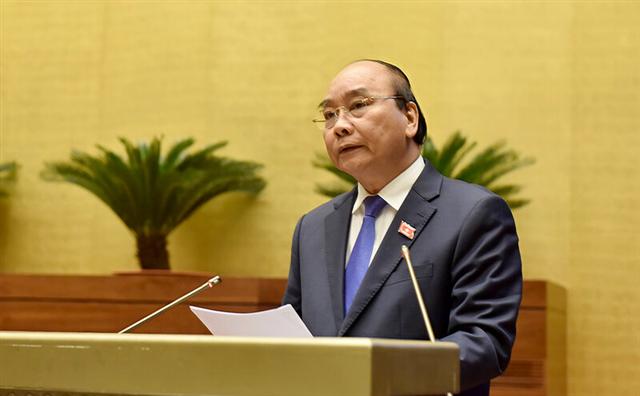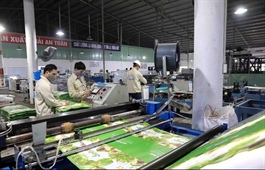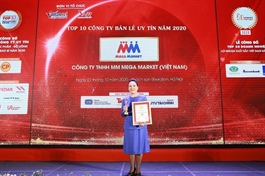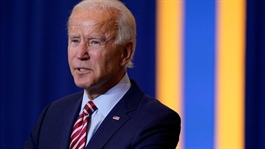Lack of determination to move forward remains Vietnam biggest challenge: PM
Lack of determination to move forward remains Vietnam biggest challenge: PM
Over the past five years, Vietnam has generated around US$1.2 trillion worth of GDP and ensured a stable macro-economic environment for development.
Vietnam’s biggest challenge and risk is not whether the country can escape the middle-income trap, or lag behind in economic development, but it is the lack of determination to move forward, according to Prime Minister Nguyen Xuan Phuc.

Prime Minister Nguyen Xuan Phuc at the National Assembly. Photo: Nhat Bac.
|
Over the past five years, Vietnam has generated around US$1.2 trillion worth of GDP and ensured a stable macro-economic environment for development, stated Mr. Phuc at a discussion session at the National Assembly on November 10.
Mr. Phuc referred to a study conducted by The Economist in August that Vietnam was named among the world’s 16 most successful emerging economies, while statistics from the World Bank suggested Vietnam is in the top 10 fastest growing economies with an average GDP growth rate of 6.8% in the 2016–2019 period.
This year, as the world’s economy falls deep into recession amid the Covid-19 pandemic, Vietnam remains steadfast in pursuing the dual target of both containing the pandemic and boosting economic recovery, which has resulted in positive economic growth.
In the past four years, nearly 350,000 new enterprises have been established, representing half of the total operational ones, with a combined registered capital of VND10,000 trillion (US$432.42 billion).
Vietnam is now home to hundreds of enterprises with assets value going up to billions of US dollars in the fields of manufacturing, IT and telecommunications.
The benchmark Vn-Index hovered around 500 points in 2016 but later reached its peak of 1,200 in April 2018. Despite the pandemic and global recession, the gauge still maintains its high at around 950 points.
The market capitalization is estimated at 100% of the GDP and helped pumped an addition of US$115 billion into national assets over the past four years.
Mr. Phuc noted over eight million new jobs have been created since 2016, while productivity has significantly improved with a growth rate of 5.8% per year from the 4.3% in the previous five years.
Meanwhile, GDP per capita increased by 145% in the last five years, stated Mr. Phuc, adding GDP per capita at purchasing power parity is nearly US$9,000.
The World Bank estimates Vietnam’s middle class could make up over 50% of the population by 2045, equaling to the population of South Korea.
Notably, the poverty rate sharply declined from 9.8% in 2015 to below 3% in 2020, and the government aims to continue lowering the rate further.
Priorities to move forward
Regarding priorities in the coming time, Mr. Phuc suggested Vietnam to ensure stable macro-economic conditions and keep the inflation rate below 4%.
The PM expected Vietnam’s economy to stay dynamic and creative to ensure rapid and sustainable development. By 2045, Vietnam is set to become a developed and high-income country, Mr. Phuc noted.
During the current global context, Vietnam would continue to build trust among investors and in the business community, focusing on improving the business environment in a fair and predictable manner.
The government gives priority to implementing infrastructure projects, especially strategic ones in terms of quantity, quality and consistency.
Additionally, training high quality human resources is essential to aid the development of a modernized economy, Mr. Phuc asserted.
For the finance – banking sector, Mr. Phuc said there would be more strict measures control risks at weak banks. The government continues to consider plans to reduce interest rates and capital costs for enterprises.


























